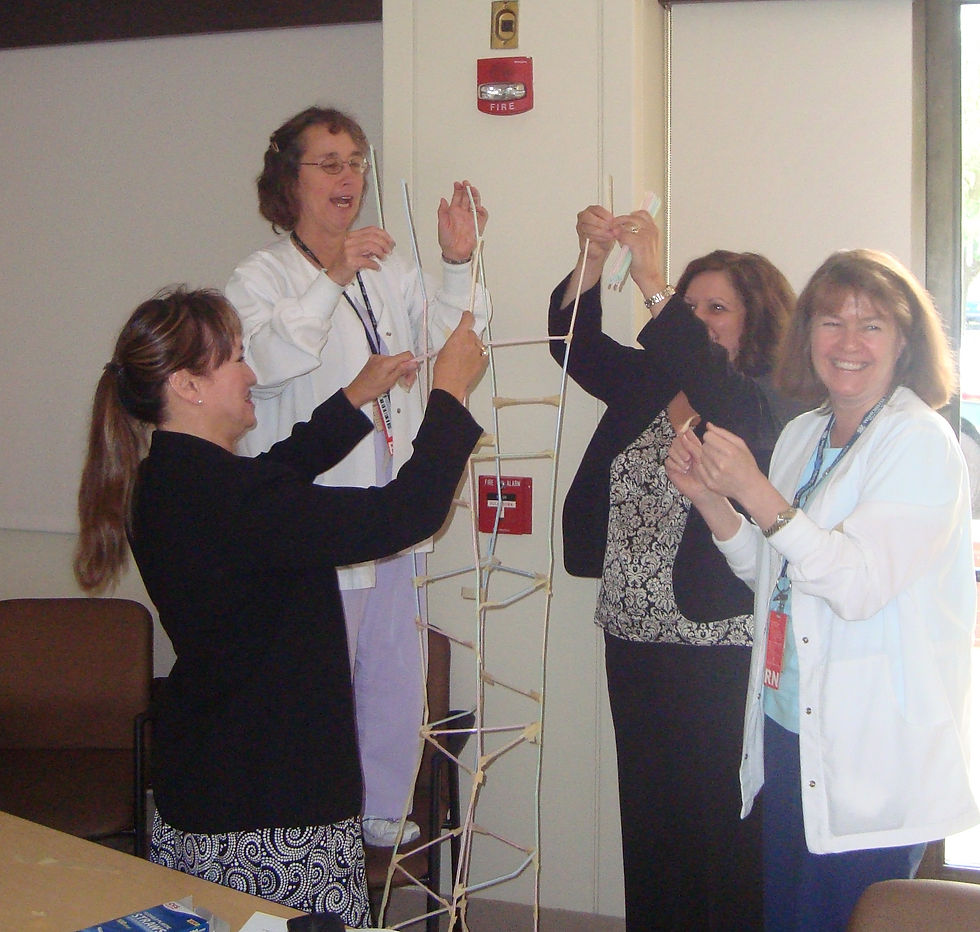Using Games to Reinforce Adult Learning
- Regina Clark

- Jan 23, 2020
- 3 min read
Updated: Nov 22, 2023

Providing training for your employees is a waste of time and money unless your employees learn something and/or do something better with what they learn. Unfortunately, organizations often ask subject matter experts (SMEs) to train others and these subject matter experts have no idea how to create interactive training experiences which increase content retention and transfer knowledge. SMEs often read PowerPoint slides and bore participants. I have witnessed this hundreds of times in many organizations. SMEs would benefit from learning about adult learning before they are asked to train anyone.
For years, trainers have been using interactive games during their training programs to increase content retention and reinforce learning. According to Eric Jensen, author of The Learning Brain, “the idea of embedding academic learning into an entertaining format is centuries old because it works.”
There are so many resources available to trainers today. Edward Scannell and John Newstrom have published numerous books about experiential learning and games trainers play. You can create your own Jeopardy game, cross word puzzle, card game, icebreaker, team challenge, scavenger hunt with clues or any other interactive activity.
There are numerous reasons to incorporate game playing into training. Here are a few:
Adults are big kids who like to have fun. Playing a game is fun.
Playing a game is active learning as opposed to passive learning. People learn better when they are active and highly engaged.
Laughter is often involved with playing games. Laughter is good for the body, mind and soul!
Often games involve teamwork. During my PIVOT training program, I ask the participants to break out into teams and then we start the Adaptability Challenge. Playing the Adaptability Challenge is a blast. When you play a game with adults during a training program, the debrief is critical. During the debrief, we talk about lessons learned and how the team could have created a better result.
Playing a game during training improves team communication, conflict resolution, delegation and other skills.
Playing games creates healthy competition. No one likes to let their team down and often quiet employees speak up during the game.
Showing support and cheering for each other occurs during game time improves employee engagement.
When training is fun, the participants will tell others about the positive training experience. It’s always better to have participants with a positive mindset who are open to learning.
The Trainer’s Role
Deciding to incorporate a game into a training program takes preparation. Prior to the training, the trainer needs to gather any material and or equipment needed for the game. It could be as simple as a deck of cards and candy for prizes or as complicated as creating maps and hiding clues for a scavenger hunt. My preparation for the Adaptability Challenge includes putting together a bag of supplies for each team and buying some prizes. I also have a stop watch to time training activities.
Prior to the game, the trainer communicates instructions to the participants and answers any questions. During the game, the trainer should stay visible and observe each team. It is not the right time to coach any team, just to pay attention, listen and take mental notes. After the game is finished, the trainer serves as a facilitator during the debrief. I like to have the teams conduct their own debrief. I help them with sharing a few questions for the team.
How did everything go?
Was their conflict? Any obstacles?
Was there a leader?
Did you reach your goal?
How could the results be better?
What are the key takeaways from the experience?
The training location also impacts playing a game. A large room with open space to move around is ideal. I have also used additional space to separate teams when possible. For example, I have used hotel porches and outdoor picnic tables to separate teams during game time.
Laughter and fun always impacts learning! The more, the better!





Comments